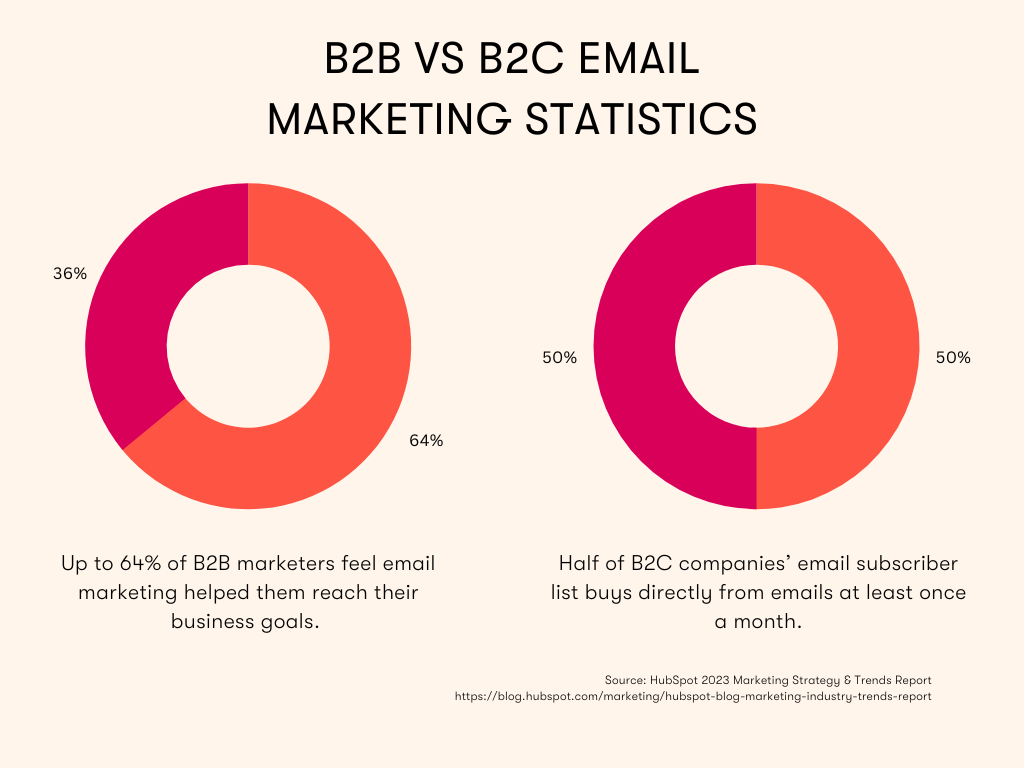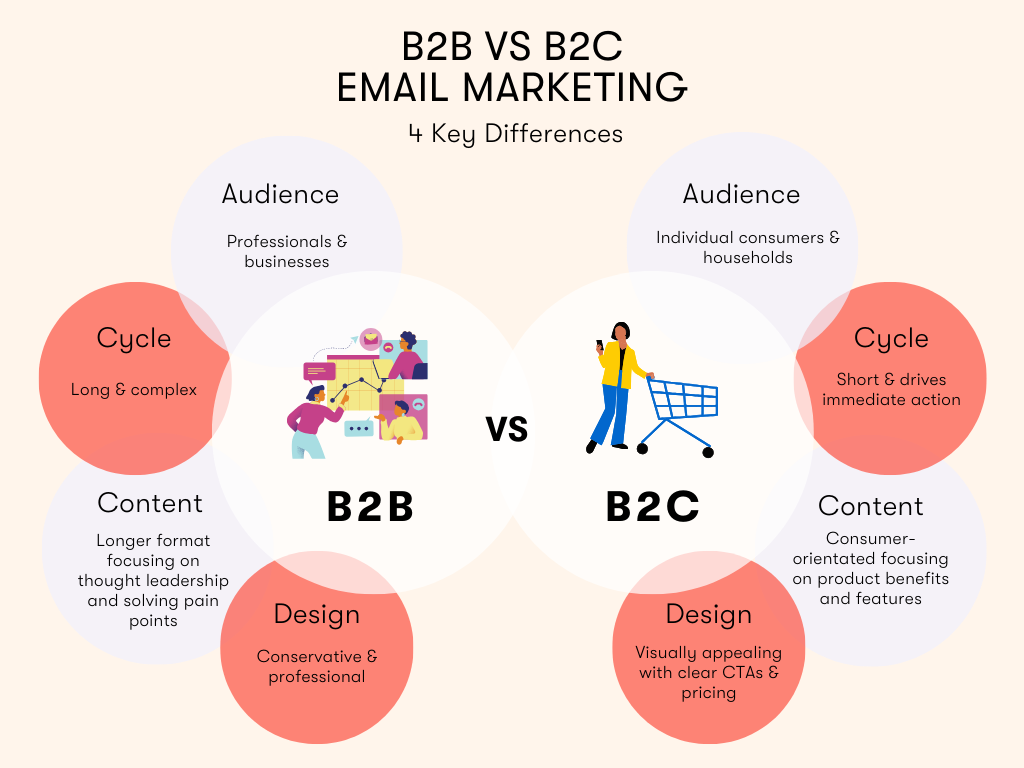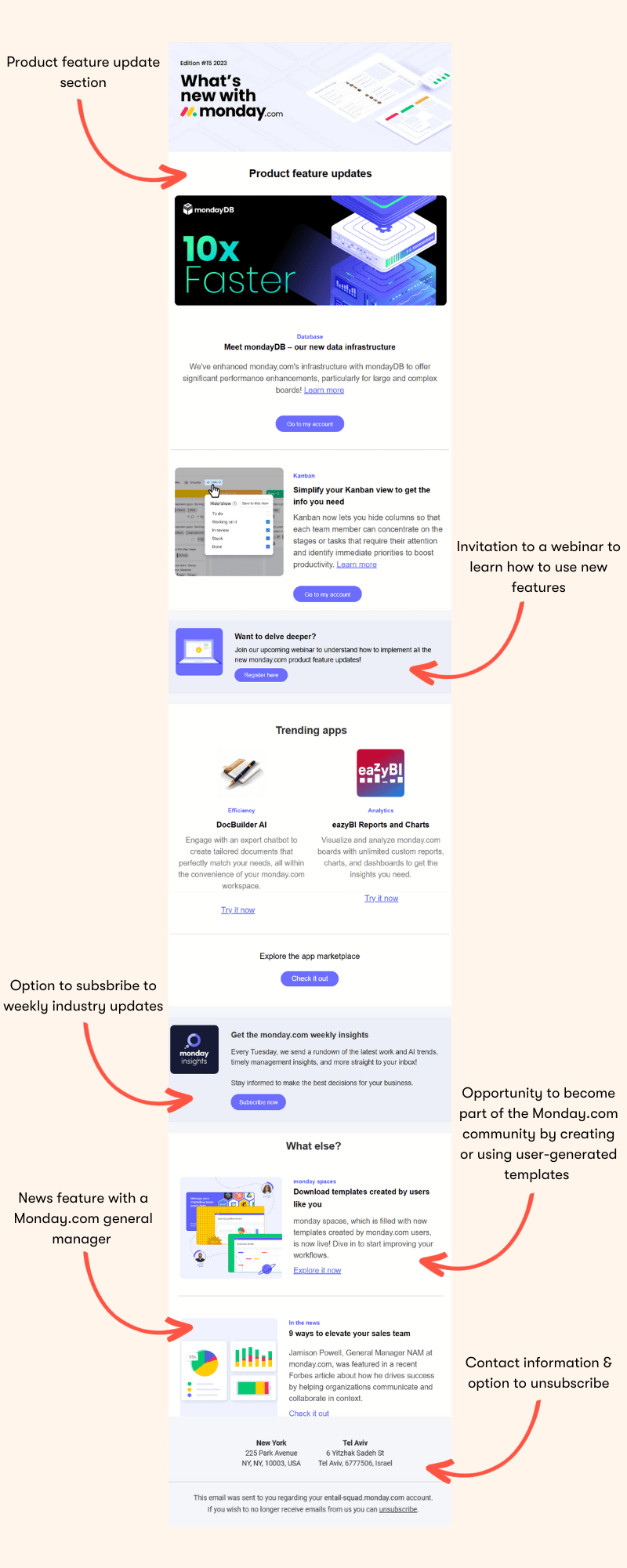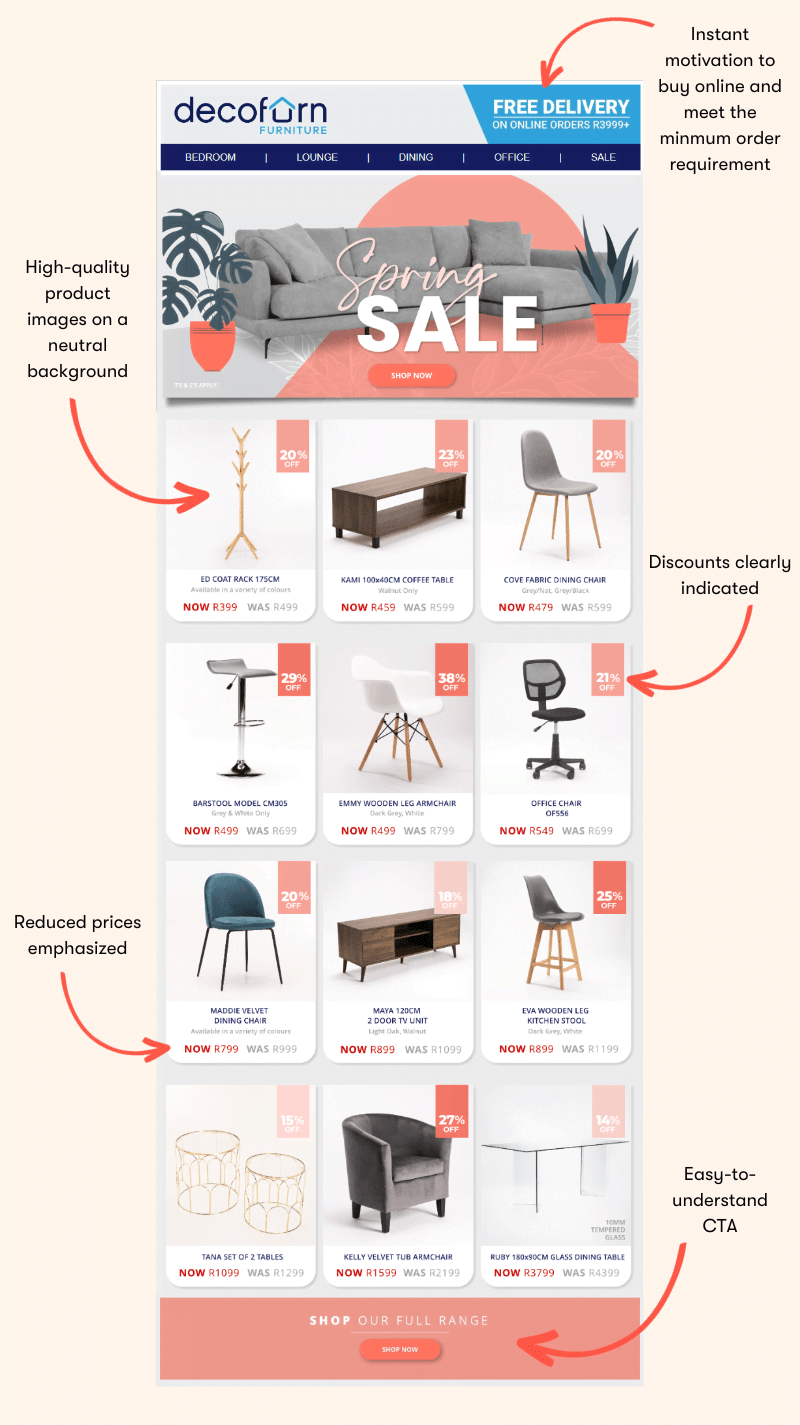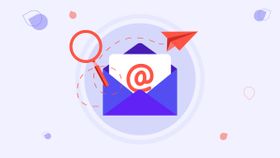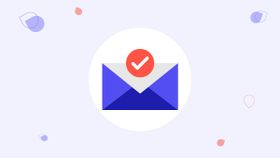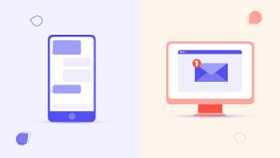B2B vs B2C Email Marketing in 2024: Differences & Examples
Find out what sets B2B vs. B2C email marketing apart and how to maximize your results for both.
Updated November 16, 2023.
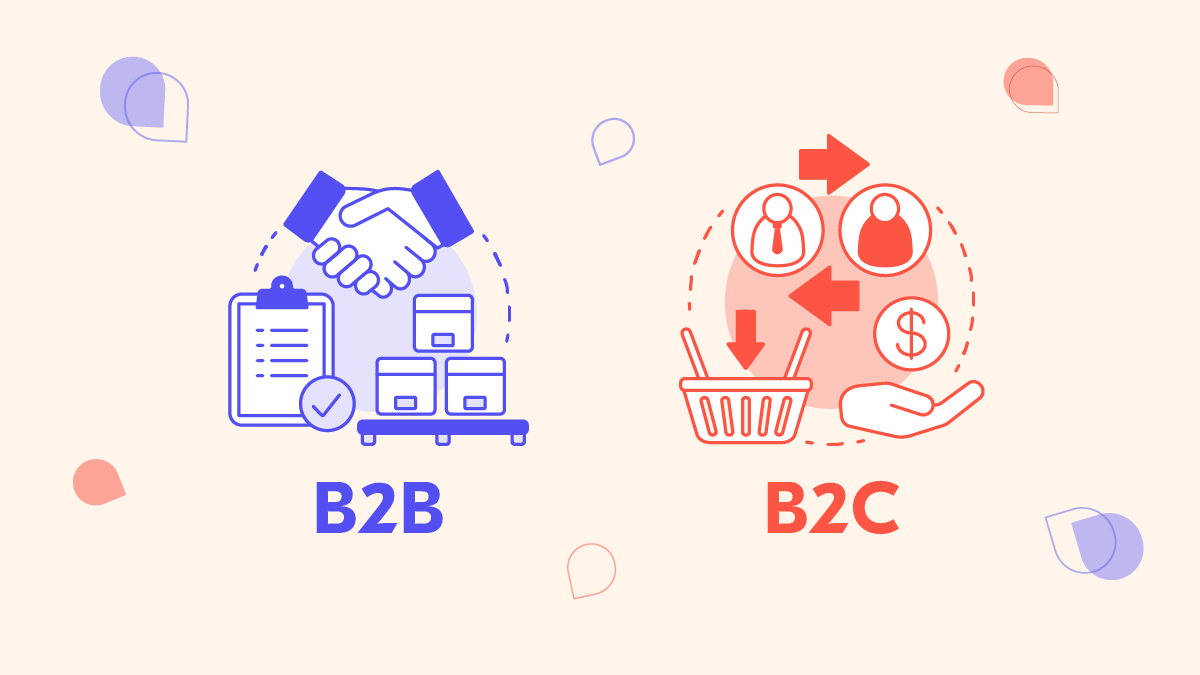
With over 4 billion global email users, it's no wonder that email marketing remains a powerful tool for both B2B and B2C companies. Whether you're selling products or services or reaching out to consumers or businesses, email marketing is a cost-effective way to connect with your audience and drive results.
Below, we explore why email marketing is crucial for both B2B and B2C sectors and delve into some key differences between these approaches.
Meet the expert
Andrew Royal, a seasoned marketing executive with nearly a decade of experience, is the founder of RevOps. He specializes in helping SMBs optimize revenue operations through data-driven strategies.
Why should you invest in email marketing?
You have to invest in email marketing because it's basically free and relatively easy.
The great thing about email marketing is that it's cost-effective. But why is that the case?
- Automation: Email marketing tools reduce manual labor by automating functions like email sequences and drip campaigns.
- Digital marketing: All your email marketing activity is online, so this eliminates physical costs like printing and postage. Plus, you don't have to pay for every email you send.
- Tiered pricing: Email marketing software is available at different price points based on your email volume. You can choose an affordable plan that suits your needs.
- Global reach: You can reach an international audience instantly without having to pay to cover physical distances.
Remember to consider your marketing team's time and effort when calculating your email campaigns' impact on your profit percentage.
Building your email list might require some effort, but once you have a substantial list, it becomes a valuable asset. Your list can grow incrementally and exponentially, giving you access to potential customers without additional marketing expenses.
B2B vs B2C: 4 key differences
While B2B vs. B2C email marketing share common elements like list segmentation, automation, and tracking, there are key differences to consider.
1. Target audience
- B2B: You're typically reaching out to professionals, decision-makers, stakeholders, and individuals representing an organization. This means your target audience is educated in the topic you're addressing.
- B2C: Your audience is individual consumers or households, which means you're using personal email addresses to make contact.
2. Sales cycle
- B2B: Your sales cycle is generally longer and more complex. Because you're offering a business solution that either solves a very specific pain point or can overhaul a whole company's operations, your target audience requires multiple touchpoints and personalized content to make an informed decision.
- B2C: B2C emails typically have shorter sales cycles, because they're focused on driving immediate action, for example, impulse buying on-sale products.
3. Content
- B2B: Your email content is more detailed, technical, and business-focused. This includes industry-specific terminology, statistics, data, and thought leadership. As a result, B2B emails have a longer format.
- B2C: Your content is simpler and consumer-oriented. You focus on your product or service's benefits and unique features, while also connecting to your audience emotionally. Because B2C emails are fast-paced and you have a limited time to grab a consumer's attention, they're shorter and to the point.
4. Design
- B2B: Your email design is more conservative and professional, focusing on clarity and content.
- B2C: B2C emails prioritize visual appeal, aesthetics, and creativity to capture consumers' attention. This means big images, colorful call-to-actions (CTAs), and clear pricing.
Despite these staple differences, every email list is unique. It's important to A/B test your email marketing efforts to ensure you're meeting your target audience's needs.
There's no such thing as a cookie-cutter approach to email marketing. Sometimes, you'll find a B2C market that reacts to those longer, more in-depth emails, just like a particular B2B company might react to the shorter, punchier emails.
» Here's how to construct an email marketing journey that works.
B2B email marketing example: Monday.com
The key to successful B2B email marketing is balancing your informational and promotional content within the same email instead of sending separate emails. Your email can include the following elements:
- Product features updates.
- Links to resources like a community, webinar, or blog.
- Snippets of a case study showcasing your product or service in action.
Monday.com combines all of these aspects in their B2B email newsletter:
- A product feature update section right at the top of the email.
- An option to subscribe to weekly industry updates.
- An opportunity to become part of the Monday.com community by creating or using user-generated templates.
- Contact information and an option to unsubscribe clearly incorporated at the bottom.
B2C email marketing example: Decofurn
B2C email marketing needs to put the product or service front and center. This means engaging with your customers and motivating them to take action, for example, making a purchase. You can do this by:
- Personalizing each customer's email. This includes addressing customers by name and including custom offerings based on their preferences.
- Adding clear CTAs so customers know exactly what action they should take.
- Highlighting any discounts or price reductions.
- Including high-quality product images.
Decofurn implements these practices in their spring sale newsletter:
- A free delivery offer right at the top, providing instant motivation to buy online and meet the minimum order requirement.
- High-quality product images on a neutral background.
- Discounts are clearly indicated, and reduced prices are emphasized.
- The email ends with an easy-to-understand CTA.
» Find more attractive email marketing examples here.
Expert guidance when you need it most: Consider an email marketing specialist
Having the right expertise at your fingertips can make or break your email marketing strategy. Mayple's vetted expert marketplace gives you easy access to industry specialists who can help you optimize your email marketing efforts, reduce costs, and provide AI-driven insights for data-backed decisions.
From B2B to B2C: Mastering email marketing's diverse terrain
Email marketing remains a vital tool for both B2B and B2C companies, offering cost-effective global reach. However, while common principles underpin both, distinctions are crucial. B2B targets professionals with longer sales cycles, necessitating detailed, technical content and conservative design.
In contrast, B2C emails focus on shorter, consumer-oriented, visually appealing content, promoting immediate actions like purchases.
Despite these differences, successful email marketing hinges on personalization and adaptability. It's not a one-size-fits-all approach, but rather a powerful, versatile means to connect, inform, and inspire action, bridging the gap between businesses and consumers in an increasingly digital world.
» Find the perfect email marketing expert for your business.

